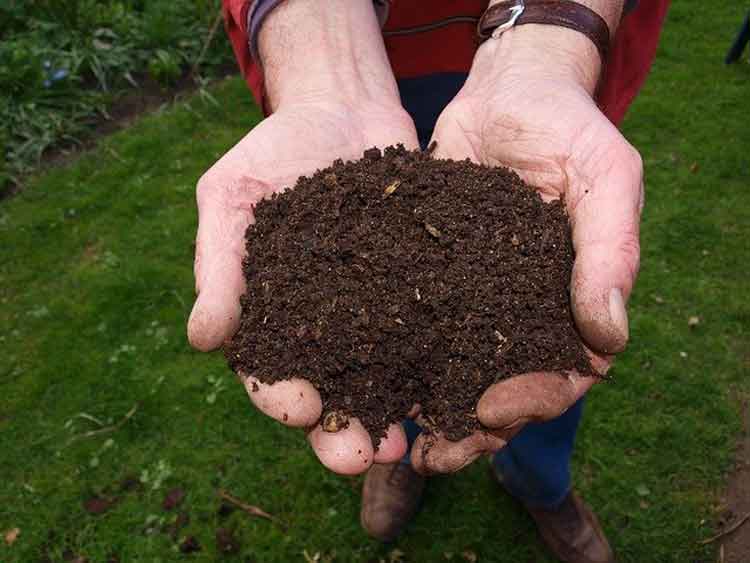Table of Contents
Things Not to Be Used for Making Compost
You can generate very effective compost or compost from your home’s kitchen trash and yard waste by composting. However, believing that you may put any type of kitchen waste in your compost container can be upsetting.
Many individuals add a variety of products to their compost, but for one reason or another, it hurts their compost, such as some food items that emit an odour that attracts certain types of bacteria.
Some foods slow down the composting process, which may be frustrating for anyone, especially newcomers. That is why it is critical to understand what should be composted and, even more importantly, what should not be composted.
When such a product is ready for use as compost, it has little influence on the plants, and there is sometimes a risk of injury or illness.

Dairy and Fatty Foods
Milk, curd, cheese, butter, and other fat and greasy meals, for example, should not be composted. In general, all of these disintegrate after being placed in the compost, but they also attract a variety of insects, insects, and other pests, posing a threat of a bad odour in the house. Many individuals quit generating compost because of the unpleasant odour, or their family members stop them, so make sure you use the proper materials in your compost so that good quality compost is also odourless. Composting dairy products and other fatty foods is not recommended.
Bits of Wood or Plants That Have Been Treated With Chemicals
Do not utilise any plant components that have been treated with fungicides, pesticides, or other chemicals. Chemically-laden plant pieces will contaminate the compost, killing beneficial microorganisms in the composting process and slowing or stopping the composting process. Similarly, wood or its fragments that have been treated with varnish, paint, polish, or other chemicals should not be composted. Chemically treated wood or sawdust cannot be composted.
Plants That Are Ill or Wormy
Many people cut diseased or wormed plants or any portion of them and separate it from the plant, which is excellent for the plant’s health, but it can be damaging to the compost if you leave these pieces in the compost. If you have a large plot of land with your house and a huge compost pile, you can place affected plants in it since the temperature in the large compost pile rises to 60 degrees Celsius, killing fungus, bacteria, and other pathogens.
However, very few people in our nation have a large lawn or yard with a house, and those who prepare compost do it in small drums, buckets, or pots, where the temperature is not high and fungus and bacteria can live and do damage.
Also Read: Sacred Peepal Tree | Medicinal Benefits of Ficus Religiosa
Leftover Meat That Should Not Be Composted
Compost should never be combined with leftover chicken, mutton, or fish. When these products degrade, they emit a strong stench that may appear unpleasant to us, but it attracts a variety of insects, including moths. If you put chicken, mutton, or fish, for example, in the compost, it will degrade the quality of the compost, so avoid doing so in the future. Composting meat of any kind is not a good idea.
A Real Seed-Bearing Hulled Weed
We should avoid putting seeds-containing weeds in compost; otherwise, the seeds may remain in the compost, and when you use it again the following season, the weed will start spreading again by giving birth at that location.

Charred Ash
The burnt wood should be put in the compost since it is beneficial for compost, however the coal stick should not be put in the compost. The first reason is that it contains a lot of sulphur, which causes the compost to become more acidic than necessary; second, coal is sometimes chemically treated, which leaves the compost vulnerable to contamination. Keep the coal in a very little amount.
Excrement
If you love your dog or cat, don’t put their excreta and urine in your compost bin or pile by accident. Some people believe that everything will decompose, however this is not the case. Dog, cat, and other pet excrement are carriers of a variety of hazardous bacteria, viruses, and other pathogens that can make your compost unsafe, causing injury to your garden and family instead of profit.
Also Watch: Peepal Tree | Benefits of Peepal Tree | Ficus Religiosa | Praying Peepal Tree
You wouldn’t think to put some of these things in compost, but they do.
You’ve learned what you shouldn’t put in your compost, so now let us tell you about some of the items you might not have considered to put in your compost.
- Expiry Spices and Herbs
- Burnt Pop Corns
- Cardboard and Cardboards (shredded)
- Wooden chopsticks and toothpicks
- Hair and animal fur
- Small shavings of cotton fabric
- Plants removed from the aquarium
- paper napkin
Please let us know how you found this information by leaving a comment. Join Knowledge Showledge for interesting and valuable information about plants and gardens.